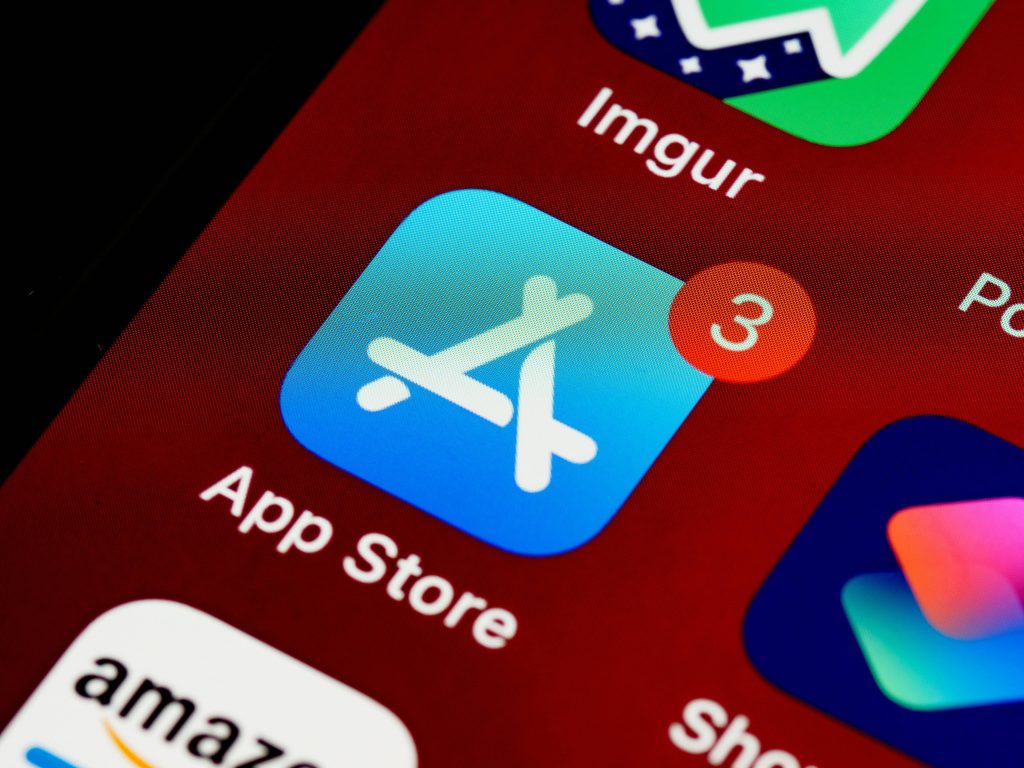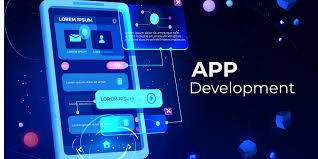Mobile devices and mobile applications are proving to be the most popular way for individuals and businesses to connect with their target audience. Are you exploring mobile app development? Don’t miss out on the following article from Coming.
Mobile App Development: What is it?
Simply defined, mobile app development is the process of creating software for smartphones, tablets, and other mobile devices. This process generally involves writing code to create software and designing the user interface for the app.

Overall, mobile app development is not significantly different from developing other types of software, including web applications (web apps). However, the major difference between mobile app development and other traditional software is the ability to leverage and use the built-in features of a specific device.
For example, mobile applications can take advantage of the built-in features of a phone such as GPS, Bluetooth, camera, microphone, etc.
It is evident that iOS and Android applications currently dominate the mobile app market. Therefore, while developing apps for other platforms is entirely feasible, most apps today are targeted towards these two platforms.
Benefits of Mobile App Development
Mobile app development brings numerous benefits to businesses and individuals. Consequently, the demand for this service has been increasing continuously in recent years. In the following section, Coming will summarize some of the benefits of developing mobile apps.
Increased Brand Recognition and Customer Reach
The fact that users can download mobile applications from app stores like the App Store or Google Play demonstrates the potential for businesses and individuals to reach users globally.
Additionally, users can easily share apps with each other. This increases the reach and recognition for app owners.
Better User Experience
Mobile apps are specifically designed for mobile devices. Therefore, it is not surprising that the user experience on these devices is optimized better, especially when compared to interacting with websites on phones.
Apps are often designed with an intuitive and easy-to-use interface. Additionally, fast response times are a factor that increases customer satisfaction.
Improved Customer Loyalty
Mobile app development also allows businesses to connect directly with customers, providing them with a personalized experience.
Many surveys show that businesses using push notifications to send important promotional information to customers help strengthen their attachment to the brand.

Revenue Generation for Businesses
Mobile apps generate revenue for businesses in various ways, from selling products within the app, advertising, or even charging subscription fees from users.
Developing mobile apps is also a strategy that many businesses currently apply to reduce marketing and advertising costs by promoting brands and products more directly and effectively.
Mobile App Development Process
To help you better understand the mobile app development process, Coming has broken it down into the following steps:
Idea Planning and Strategy
Idea planning is the first step for any software development process. Some may already have a complete idea for building a mobile app. However, many start from scratch.
If you don’t have a clear idea or concept for building an app, you should ask yourself the following questions:
- What do you aim to achieve by developing a mobile app?
- What are your goals for the app?
- What problems will your mobile app solve for customers?
- What features do you want in the app?
- How much are you willing to invest in the app?
- How do you plan to develop the app? (In-house team, outsourcing, etc.)
During brainstorming, it is common to get carried away by ideas. However, in the initial stage, it is important to focus on building core features first and temporarily forget about non-essential features.
Market Research
Once you have an idea, review similar apps in the market. Compile a report that answers the following questions:
- Who are your competitors?
- What type of customers are you targeting?
- What is unique about your strategy compared to competitors?
- What is the best platform for your app?
- How will you promote the app?
Market research is a crucial step in the mobile app development process. You cannot develop an app that nobody needs. Clarifying market demand will save you a lot of money before you do anything.
UX Design for Mobile App
Design is a crucial step in mobile app development. Start by considering how you want your app to look. Ensure the app’s interface is smooth and easy for customers to use.
You will need to create some prototype models based on existing wireframes before building the app with complete functionality.

Mobile App Development
This is when you actually create the mobile app. This step includes backend technologies, APIs, and frontend development.
Depending on the software development method, you will need to build two app versions for iOS and Android. Alternatively, you can use cross-platform development tools to create a single app that works seamlessly on both operating systems.
The time spent developing a mobile app varies widely. Some apps only take a month to build, while others may require six months or even a year, depending on the complexity of the features you require.
Software Testing
Software testing is the stage where you find bugs or any other issues that need to be fixed before the app officially goes live.
No app is perfect. Therefore, the mobile app development process cannot skip the testing stage to ensure the app runs smoothly and provides the best user experience.
However, do not be too strict with yourself. It is nearly impossible to create a perfect app right away. Therefore, for less concerning issues, you can release the product and update patches later.
Uploading the App to Stores
This is the final step in the mobile app development process. After ensuring the app runs well, submit it to app stores and wait for approval.
The approval time varies for each platform. For example, the iOS App Store may take 1-3 days, while Google Play for Android might take about a day or even a week for complex or highly scrutinized apps.

Types of Mobile Applications
Mobile app development has changed significantly compared to the past. Previously, due to coding limitations, Native Development was the only option. This meant that if you wanted to build an app for both iOS and Android platforms, each platform would require a separate app version.
However, these barriers have been removed today. Tools and programming languages have become more interconnected, allowing developers to create cross-platform applications. Below are the types of mobile applications to differentiate:
Native Mobile Applications
Native applications are available through the Apple App Store or Google Play Store. In most cases, native apps can work without an internet connection and take advantage of the device’s existing features.
Developing native applications means writing code specifically for the device’s operating system.
Cross-Platform Native Mobile Applications
Developing cross-platform native applications uses the same code for all platforms. Thus, you can write the code once, and the app can be installed on both iOS and Android devices.
For users, there is almost no difference between native and cross-platform native applications. However, for developers, cross-platform mobile apps significantly save time and effort.
Hybrid Mobile Applications
Hybrid and cross-platform applications often have many similarities. Like cross-platform applications, hybrid apps can be written once and work on both platforms.
However, developing hybrid applications is a bit easier than cross-platform development. Creating cross-platform applications still requires high technical skills and development expertise. Developing hybrid applications is less technical and can be achieved by developers with basic web development knowledge or no-code app creation tools.

Progressive Web Apps (PWA)
PWA are applications delivered through the web rather than being natively installed on the user’s device.
With the current technology advancements, web apps can operate as efficiently as mobile applications.
The Importance of Choosing the Right Mobile App Development Partner
Choosing the right mobile app development partner is crucial for shaping the app’s success. The partner must ensure expertise, experience in the field, reliability, and the ability to deliver projects on time.
Coming is a mobile app development partner you can consider when embarking on exploring technology potential. We have a team of highly skilled and experienced developers. With timely solutions and a range of services, including mobile app development, web development, and marketing services, Coming becomes an ideal choice for both startups and large enterprises. We encourage you to thoroughly explore your options and choose the one that best fits your project requirements and business culture.
With a proven track record of delivering excellent mobile applications that you can reference in Coming’s portfolio, we are committed to providing expertise in creating solutions that exceed expectations.
If you are looking to develop a mobile app, consider Coming to propel your business towards exceptional success.

